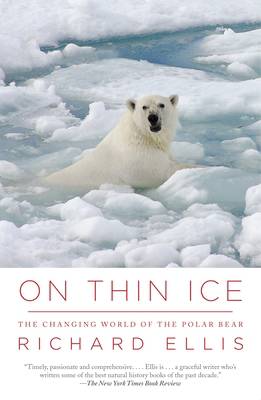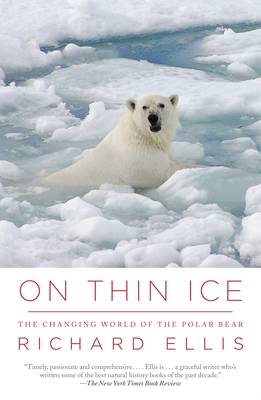
- Afhalen na 1 uur in een winkel met voorraad
- Gratis thuislevering in België vanaf € 30
- Ruim aanbod met 7 miljoen producten
- Afhalen na 1 uur in een winkel met voorraad
- Gratis thuislevering in België vanaf € 30
- Ruim aanbod met 7 miljoen producten
Zoeken
€ 26,45
+ 52 punten
Omschrijving
From "a graceful writer who's written some of the best natural history books of the past decade" (The New York Times Book Review) comes an urgent, stirring celebration and a rallying cry on behalf of one of earth's greatest natural treasures.
Polar bears--fierce and majestic--have captivated us for centuries. Feared by explorers, revered by the Inuit, and beloved by zoo goers everywhere, they are a symbol for the harsh beauty and muscular grace of the Arctic. But as global warming threatens the ice caps' integrity, the polar bear has also come to symbolize the environmental peril that has arisen due to harmful human practices. In the past twenty years alone, the world population of polar bears has shrunk by half. Today they number just 22,000.
Polar bears--fierce and majestic--have captivated us for centuries. Feared by explorers, revered by the Inuit, and beloved by zoo goers everywhere, they are a symbol for the harsh beauty and muscular grace of the Arctic. But as global warming threatens the ice caps' integrity, the polar bear has also come to symbolize the environmental peril that has arisen due to harmful human practices. In the past twenty years alone, the world population of polar bears has shrunk by half. Today they number just 22,000.
Specificaties
Betrokkenen
- Auteur(s):
- Uitgeverij:
Inhoud
- Aantal bladzijden:
- 416
- Taal:
- Engels
Eigenschappen
- Productcode (EAN):
- 9780307454645
- Verschijningsdatum:
- 7/12/2010
- Uitvoering:
- Paperback
- Formaat:
- Trade paperback (VS)
- Afmetingen:
- 136 mm x 202 mm
- Gewicht:
- 399 g

Alleen bij Standaard Boekhandel
+ 52 punten op je klantenkaart van Standaard Boekhandel
Beoordelingen
We publiceren alleen reviews die voldoen aan de voorwaarden voor reviews. Bekijk onze voorwaarden voor reviews.











